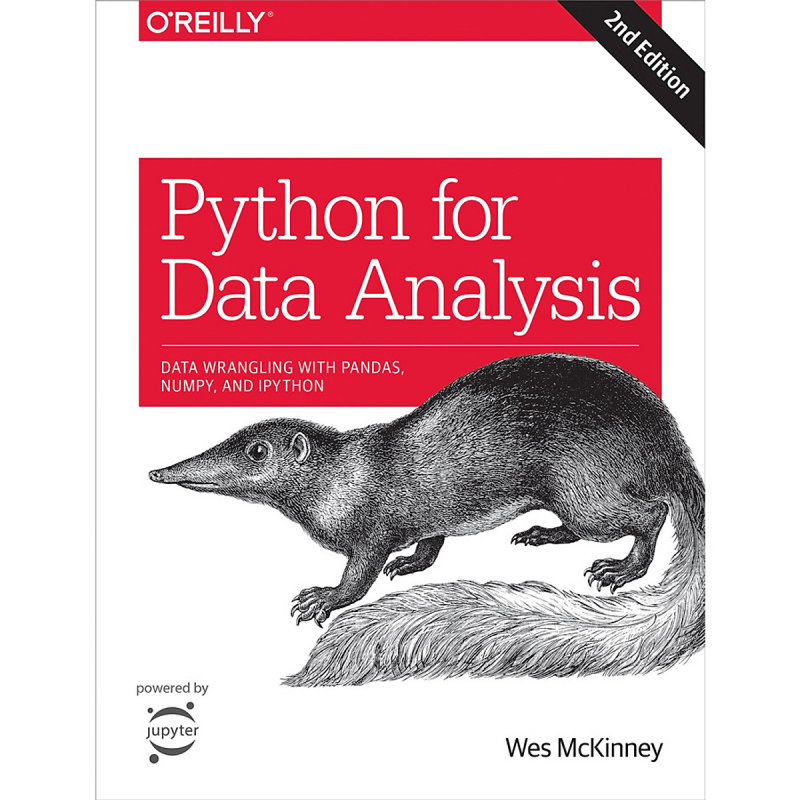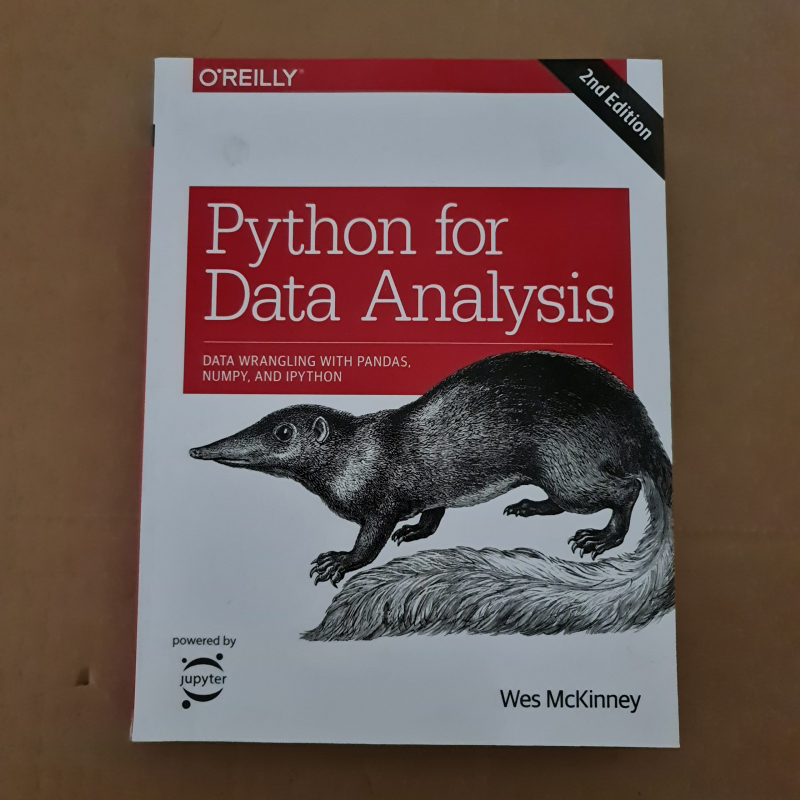Python for Data Analysis
Wes McKinney is a software engineer and entrepreneur based in New York. He moved on to do quantitative finance work at AQR Capital Management in Greenwich, CT after obtaining his undergraduate degree in mathematics at MIT in 2007. Frustrated with tedious data processing tools, he learnt Python and began developing the pandas project. He is now an active member of the Python data community and a proponent of Python's usage in data analysis, finance, and statistical computing applications.
Get detailed instructions in Python for manipulating, processing, cleaning, and crunching datasets. The second version of this hands-on guide, updated for Python 3.6, is jam-packed with practical case studies that show you how to address a wide range of data analysis problems successfully. In the process, you'll learn the most recent versions of pandas, NumPy, IPython, and Jupiter.
Python for Data Analysis provides a comprehensive, current introduction to Python data science tools written by Wes McKinney, the author of the Python pandas project. It is great for analysts who are new to Python as well as Python programmers who are new to data science and scientific computing. GitHub hosts data files and related materials.
- For exploratory computing, use the IPython shell and Jupiter notebook.
- Learn about NumPy's basic and advanced features (Numerical Python)
- Begin with the pandas library's data analysis tools.
- Load, clean, transform, merge, and reshape data with adaptable tools.
- Matplotlib can be used to create useful visualizations.
- To slice, dice, and summarize datasets, use the pandas group by facility.
- Analyze and alter time series data, both regular and irregular.
- With complete, detailed examples, learn how to address real-world data analysis challenges.
Author: Wes McKinney
Link to buy: https://www.amazon.com/Python-Data-Analysis-Wrangling-IPython/dp/1491957662/
Ratings: 4.6 out of 5 stars (from 1550 reviews)
Best Sellers Rank: #8,962 in Books
#3 in Data Modeling & Design (Books)
#5 in Data Processing
#9 in Python Programming












